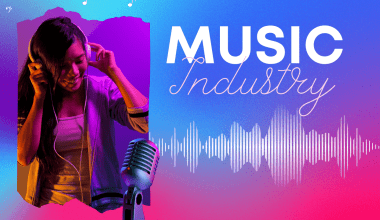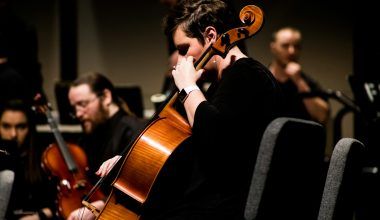Music entertainment has always been a central part of human culture. It transcends boundaries, connects people, and evokes emotions like no other form of art. From ancient rhythms to today’s digitally produced beats, music entertainment continues to evolve, reflecting society and its aspirations.
Artists play a vital role in this industry, crafting tunes that inspire joy, nostalgia, and even healing. Whether it’s a soulful ballad or an electrifying pop anthem, the world of music entertainment has something for everyone. It’s not just about listening; it’s an experience that brings people together.
The Evolution of Music Entertainment
Centuries ago, music was simple—chants, drums, and flutes made up the earliest forms of entertainment. Over time, instruments evolved, creating complex harmonies and rhythms. Music entertainment began to reflect society, telling stories of joy, sorrow, and triumph.
Fast forward to the 20th century, the advent of recording technology revolutionized music entertainment. Vinyl records, cassette tapes, and CDs brought music into homes worldwide. The digital age took this a step further, with platforms like Spotify and Beatport making music accessible to everyone, anywhere.
Digital Transformation in Music Entertainment
The digital revolution has significantly shaped music entertainment. Online platforms have made it easier for artists to share their work and for audiences to discover new music. Services like Beatport enable DJs and producers to sell music directly to a global audience, ensuring their art reaches the right ears.
Streaming platforms have democratized music entertainment. No longer do fans need to purchase entire albums—they can explore individual tracks, playlists, or curated collections. This shift has changed how artists release music, often focusing on singles or extended plays (EPs) to maintain audience engagement.
Live Performances: The Heartbeat of Music Entertainment
Despite the convenience of digital platforms, live performances remain the soul of music entertainment. Concerts, festivals, and gigs offer an immersive experience that no recording can replicate. From small indie shows to grand stadium tours, live events allow fans to connect with their favorite artists in real-time.
Virtual concerts have also become a part of music entertainments. Using technology, artists can perform for fans across the globe without the need for physical venues. This innovation makes music entertainment more inclusive and accessible.
Genres and Diversity in Music Entertainment
One of the most beautiful aspects of music entertainments is its diversity. There’s a genre for every taste—pop, rock, classical, hip-hop, electronic, and many more. This variety ensures that everyone can find a beat that resonates with them.
Cross-genre collaborations have also become popular, blending elements from different styles to create fresh, unique sounds. This creativity reflects the ever-evolving nature of music entertainments, where boundaries are constantly pushed.
The Role of Technology in Music Production
Technology has transformed not only how we listen to music but also how it’s created. Modern music entertainments relies heavily on software and digital tools to produce and enhance tracks. DJs and producers use platforms like Ableton and FL Studio to craft intricate sounds.
The rise of artificial intelligence is also influencing music entertainments. AI tools can compose melodies, analyze trends, and even suggest improvements to artists. While some fear this could replace human creativity, most view it as a tool to enhance artistry.
The Business Side of Music Entertainment
Behind every hit song is a complex industry that ensures its success. From record labels to digital platforms, the music entertainments ecosystem is vast and interconnected. Artists rely on this network to promote their work and reach their audience.
Platforms like Beatport are essential for independent musicians. They provide a marketplace where creators can sell their music, gain recognition, and even build a career. These platforms empower artists to maintain creative control while accessing global markets.
Music Entertainment and Cultural Impact
Music entertainments is more than just sound; it’s a reflection of culture. Songs often address social issues, inspire movements, and create shared experiences. They serve as a mirror to society, capturing moments in history through rhythm and lyrics.
For instance, hip-hop has been a voice for marginalized communities, while folk music often tells tales of heritage. This cultural significance makes music entertainments a powerful medium for storytelling and connection.
The Future of Music Entertainment
The music entertainments industry shows no signs of slowing down. Emerging technologies like virtual reality and blockchain are set to redefine how we create and consume music. Artists are experimenting with immersive experiences, allowing fans to “step into” their music.
As these trends unfold, one thing remains clear: music entertainments will continue to be a universal language that unites people across the globe. Its evolution is a testament to human creativity and the desire to connect.
For further reading, explore these related articles:
- Justin Bieber Spotify Streams: A Record-Breaking Journey
- Experience the Ultimate Soundtrack with Premium Music
For additional resources on music marketing and distribution, visit DMT Records Private Limited.






